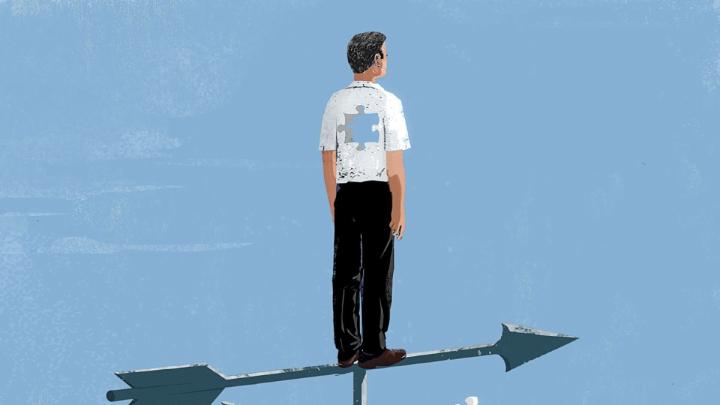I kept my spelling tests from third grade. My mother says this was an eight-year old’s effort to catalogue his vocabulary, and quotes me, apocryphally: How else will I know which words I know? There are 22, hole-punched in a binder, on the cover of which red gel pen hardened in tall, uneven letters: dictionary. (Did my teacher tell me to write this?) In all the tests I misspelled only one word. A red-ink correction tells me that word was passion. I wrote passing.
“Don’t so be so glum!” my mother said when I rediscovered the error. “Maybe this doesn’t mean you’ve passed up your passion”—I was staring unhappily into my oatmeal—“but rather that your passion is in letting things pass!”
We had been clearing out my old projects from the basement, something I always said I would not do until school was over, which—as of the end of May—it was. Early in the process, I had come across a set of note cards from an oral report I was assigned to do on Charlie Parker for Black History Month in 1997. In preparing the report, I realized, I never listened to a Parker song. Silly as it sounds, it didn’t occur to my teacher or parents to play one for me. Instead I spent the time reading a Parker biography, weeping over how he spent so much of his life fighting morphine addiction and mental illness. I was seven and had never heard the phrase nervous breakdown. Someone could have played me a 1945 Bird song, and said, “Hear that, son? Hear how it sounds like water through an open doorway? Sometimes music isn’t enough to get the sadness out.” Someone could have explained it with that trite, perfect zeal, and I would have known what jazz meant, or thought I knew. Maybe I would have felt inspired to become a saxophonist because of it. No—all I did was explain to my first-grade class how they, too, could lose their minds. I remember precisely how it began. His music was held as appositive: “Charlie Parker, who played the saxophone, was…”
I get angry with parents for missed opportunities: If only they had given books instead of toys, or taken me to a Redskins game, or moved us to California—I could have been a reader, a Redskins fan, a Californian. It upsets me, I realize, not because I would ever have wanted to be these things, but because I want to have something I can say is a lifelong passion. Do you know what I mean? I want to be like Flaubert, who raised his arms at the age of 12 and proudly declared that he would be a great French writer, and, by George, he was. I think of my best friend at Harvard who lived with the saxophone attached to his lips. Here’s a guy who aced Math 21a and knows books better than most English majors. But when it comes down to it, the sax is it. It’s always been it. Once, I asked him how he came to know this and he told me it was like learning to read: “You don’t remember learning, right? It just sort of happened.”
The passion could have even been mundane. My brother’s friend Matt just got his accounting license. When he was six, he knew himself very well and he’d tell people that his goal in life is to find things that are out of place and put them back into place. I love this. As a child on the playground, this meant returning balls to bins before the bell rang. Now as an adult, it means getting the numbers to add up right. “I have no desire to be a calculator,” he once told me. “But I am jealous of the file cabinets.”
Authorities on life—authors, for short—assure me that passion is the be-all and end-all, the raison d’être and sine qua non of really living. Seize your passion, they write, yield everything to it. I heard this at Commencement, too: “Do what you love!” “Dream big!”
It’s great advice—the best—but I’ve gotten to a certain age and I realize the reason more talented people don’t take it is because they never even knew what they loved to begin with; they didn’t really have what Flaubert or Matt did. For me, I always assumed I’d figure out my passion in college—pick a passion, pick a major, pick a career. Sometime between freshman and sophomore year my heart would yelp and say, “Noah, the thing you want most in the world is to help the poor and make movies. Now chop chop!”
I assumed my passion would arise spontaneously, intuitively, perhaps after some exposure, like the flu. And yet here I am, months after graduating, second-guessing all my choices because I don’t know if I feel strongly enough about them. I panic: What if, this whole time, I was meant to be a zookeeper? Or a biplane pilot?
I have an on-and-off mentor who recently asked me why I might want to be a writer. It wasn’t until I said that I have to write that he started taking me seriously. I’m still not sure if I was honest when I said this, though—there are days I’d prefer to dangle my feet in the pool. But supposedly all the best writers feel this passion. As Avi Steinberg put it in The New Yorker last year, a dedicated writer gets shunted off by Philip Roth’s advising, “It’s torture, don’t do it,” and replies, “You had me at torture.” Etymologically, this follows. Like patience, passion comes from the Latin pati, which doesn’t mean to flow with exuberance. It means to suffer.
What am I willing to suffer for? Honestly, a lot. At Harvard, I learned to love so many things—I read poems with Peter Sachs, wrote history for Luke Menand, rapped jazz with Vijay Iyer, studied neurodegenerative disease with Dave Liu, promoted labor protection in India with my thesis adviser, Sadhana Bery—but now I have to prioritize these things, picking and choosing what among my liberal art studies (or outside them) is worth my time, is worth making a vocation of. It’s a fortunate situation for someone to be in, but lacking some semblance of lifelong passion, I’m hesitant to proceed. It’s easier, for now, to wait at the station, but as time gains momentum I will eventually have to pick a train, and the missed lines will multiply exponentially until I arrive at some point—far out along some branch of life’s sumptuous complexity—from which there’s no turning back. There’s a term chess players will use—zugzwang—to refer to a situation in which you’d prefer to skip a turn, as any move will make you worse off. That’s it exactly: I feel Lear-sized, but must be sonnet-precise.
Then again, maybe that’s what’s insufferable about passion. It’s not the sitting down and doing it, it’s the sitting down and doing it when it’s a beautiful day outside and the trout are peckish. It’s choosing what among the things you care about you’re willing to forfeit.
I could have foreseen this. There was a point in my childhood—I’m sure of it—when I was passionate about everything, before things started dropping off. Once, years ago, there was a boy who loved Melanie Price. They had the same piano teacher and walked a similar route to school. When the boy told his parents that he would marry Melanie Price, they told him that he would not, that he would one day forget about her altogether. So the boy promised never to change the way he felt. He’d buck the system, and commit to the things he loved. I will, he vowed, love Melanie Price until the day I die. But today he no longer plays the piano and he cannot remember if the girl was in his grade at school.
Those graduation orators get ahead of themselves. There’s a cold truth behind passion no one’s talking about and it has left the term rotting. Passion is something teenagers write about on college apps to tell admissions committees that they’ve got a plan and they’ll stick to it. According to the College Board, high-school seniors use the word passion more than any other noun in their essays. (I did it, too, albeit with a synonym because I was afraid of sounding clichéd.) It’s the same after college. Passion has become one of those empty qualifications you put on résumés or eHarmony profiles or when trying to sum yourself up to a new acquaintance. I interviewed at only one hedge fund; they were looking for a writer to make their RFPs and due-diligence reports sing. I had a day of one-on-ones in a conference room with weary men in lovely suits whose most frequent question was, Are you passionate about corporate asset management? Where does one find the unbidden desire to market stock portfolios? I wish I knew. How nice it must be to feel so passionately about something that pays so well.
Perhaps I was correct to spell passion wrong, for the word, subject to overuse, has lost its original oomph—has been left dumb, clichéd. Passion used to signify unequivocal want, luring us into bed sheets, inspiring art, bringing peace and the most horrific wars at once. And now it’s a word my neighbor uses to describe her fondness for craisins.
It is both a sad and honest deflation.
I hope I’m wrong and epiphany will strike. There’s a scene in Stanley Crouch’s Kansas City Lightning where a stumbling, teenage Charles Parker Jr. hears Lester Young wailing on his sax at the Subway. “As Parker was listening,” Crouch relates, “he began to understand what the tenor saxophonist was doing, and he broke out into a cold sweat.” I’ve often pictured myself, right at the moment I make a big life decision. Sweating coldly, I suddenly become aware of my passion. I see the play and make the right call. There are worse mistakes to be made than spelling errors.
Does passion greet you from the hole of a horn? Or does it fill up from beneath like well water? In the 1600s in France, when an apprentice got hurt, or tired, the experienced workers would say, It is the trade entering his body. For them, passion was possession, something whispered by God. I listen and listen and listen. But He is not saying anything to me so let me guess: What would He say if he did whisper?








